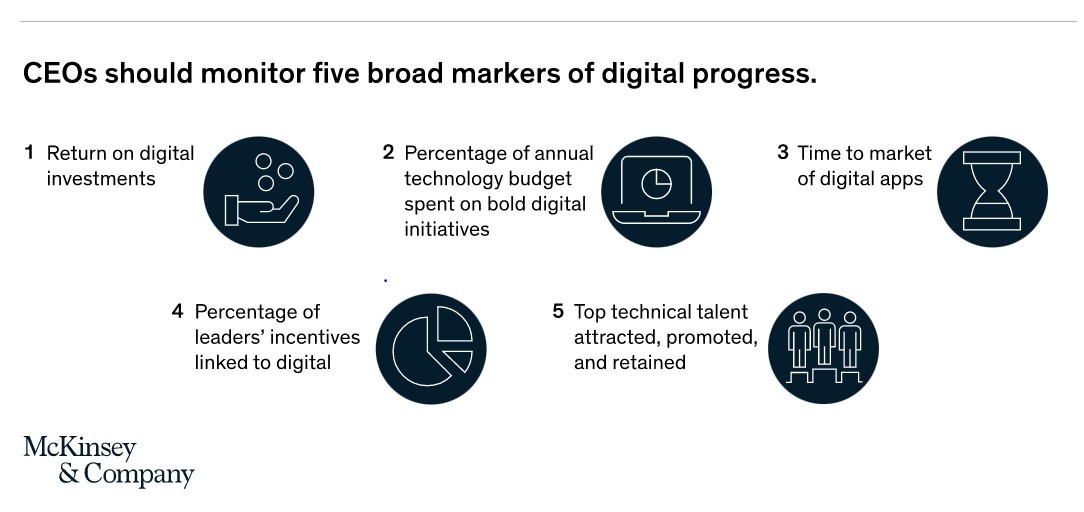[CONTRIBUTION] Embracing change in business: Why it matters
By Korea HeraldPublished : March 2, 2022 - 09:53

In the face of global environmental challenges like climate change, sustainability is on every CEO‘s agenda. The debate on “net zero” dominated discussions in the sustainability arena in 2021. We are witnessing a trend where a growing number of large corporations and financial institutions are pledging to achieve net-zero emissions by 2050.
Sustainability is top-of-mind for CEOs in Korea and around the world. It heads a shortlist of priorities that also embraces new business building; creating value through technology; and, retaining the right talent.
Sustainable, inclusive growth is key
COP26, the United Nations Climate Conference in Glasgow last year, served as a catalyst and an important milestone for many private commitments on climate action. Nearly 200 countries made a historic pledge to accelerate the end of fossil fuel subsidies and phase out their use of coal. It became evident that the private sector has an important role to play as the transition to net-zero will require an extra $3.5 trillion a year globally in capital spending. To put it in comparable terms, the increase is about half of global corporate profits, one-quarter of total tax revenue, or 7 percent of household spending.
Transitioning to a net-zero economy presents major challenges but also creates large business opportunities. It will mean more emphasis should be placed on setting new standards for organizations as achieving net-zero targets has become a new principle for business.
Promoting sustainable and inclusive growth is a priority, especially as the impact of the COVID-19 pandemic is largest for the world’s poorest countries, struggling with a longer-lasting crisis that has increased global poverty. The pandemic has driven as many as 100 million people back into poverty, living on less than $2 a day, according to the UN. In addition, COVID-19 has had an impact on women globally as they have been struggling with job loss and employment uncertainty and experiencing burnout. CEOs and leaders need to commit to creating a conducive environment for people and achieving a better and more sustainable future for our planet.
CEOs are now realizing the importance of creating value for all stakeholders. They are emphasizing growth that is both sustainable and inclusive, as new demand and investment opportunities will ultimately be triggered by maximizing inclusion and sustainability.
An urgent global phenomenon: creating new products and services
A sense of urgency about transformation is fueled by CEOs looking to find new business opportunities, especially in a pandemic era. Business leaders are more likely to focus on building new business models when compared to that of previous years. What’s clear is that organic growth is not the only method to yield results for companies.
According to the latest McKinsey Global Survey, leaders forecast that by 2026, half of their business sales and revenue will come from products, services, or businesses that haven’t yet been created. Simply put, business building has evolved as one of the top strategic priorities and opportunities for businesses and it can help bridge the gap through sustainable, inclusive growth.

More than 20 percent of surveyed business leaders ranked building new businesses as their top strategic priority while 55 percent of the respondents saw it as a top-three priority, expressing their strong commitment to putting words into action. Sustainability plays a significant role in new-business building: more than nine out of 10 respondents said they’ll build new businesses at least in part to meet the demand for sustainable products and services.
A key question is to find tangible ways to create an economy that is not only growing but addressing both sustainability and inclusion.

A lot of value sits at the intersection of business. For example, logistics companies will consider offering an array of diverse e-commerce services while banks will look into collaborating with healthcare companies to build better business relationships in providing top-notch financing healthcare services for their clients. Thus, new-business building is imperative.
Creating value through new technologies
The pace of digitalization has exponentially increased during the pandemic. There are a few reasons why more emphasis needs to be placed on embracing the power of digital transformation and technologies and speeding up the development of analytics.
First, cloud is a big deal for business. Cloud will help drive business transformation in the post-COVID 19 world. Cloud has the potential to grow, and an increasing number of companies are starting to understand the benefits of cloud, seeing it as a catalyst for innovation and digital transformation as it has the power to increase the speed of development and give near-limitless scale. Noting its strengths, many companies are thinking about how they can make a smooth transition to cloud computing, especially as it can help manage potential cyber threats and risk exposure.
Second, AI adoption is forecast to surge over the next three years due to its significant benefits, such as a growth in economic return and greater cost savings. The latest McKinsey Global Survey on AI found that the number of companies reporting AI adoption in at least one function had increased to 56 percent up from 50 percent in 2020. Respondents surveyed indicated that they expect to witness great improvements in areas, including product and service development, marketing and sales, and strategy and corporate finance.
Lastly, a shift to digitalization is a horizontal one as it requires organization-wide efforts. CEOs are well-positioned to have full view and influence across different functions of the organization, allowing them to leverage digital in an effective and profitable manner.

CEOs must track and monitor five metrics, that assess digital process: Return on digital investments, percentage of annual technology budget spent on bold digital initiatives, time to market of digital apps, percentage of leaders’ incentives linked to digital, and top technical talent attracted, promoted, and retained. A key element that is required for organizations to pursue digitalization is the degree of a CEO’s engagement -- to drive performance gains from digital investment – through measuring and tracking the impact and value creation of digital initiatives.
From CEOs to employees: retaining the right talent
Highly skilled and competent employees do the best quality work; and work the hardest. But many companies struggle to retain them. Organizations need to think about building the right performance culture and a sense of purpose. In the ongoing pandemic era, we need to adjust and adapt to the new normal and give flexibility and autonomy to employees.
“Why are we doing business?” “What is the purpose behind doing business?” Our next generation will be questioning the impact and difference they can make -- hoping to make a small change in pursuit of their goals.
Gautam Kumra is chairman of McKinsey & Company Asia. -- Ed.
-
Articles by Korea Herald











![[Today’s K-pop] BTS pop-up event to come to Seoul](http://res.heraldm.com/phpwas/restmb_idxmake.php?idx=644&simg=/content/image/2024/04/17/20240417050734_0.jpg&u=)





![[KH Explains] Hyundai's full hybrid edge to pay off amid slow transition to pure EVs](http://res.heraldm.com/phpwas/restmb_idxmake.php?idx=652&simg=/content/image/2024/04/18/20240418050645_0.jpg&u=20240418181020)

![[Today’s K-pop] Zico drops snippet of collaboration with Jennie](http://res.heraldm.com/phpwas/restmb_idxmake.php?idx=642&simg=/content/image/2024/04/18/20240418050702_0.jpg&u=)